 THE FUTURE
THE FUTURE In Which We Treat You To The Society of the Spectacle
 Tuesday, October 20, 2009 at 8:19PM
Tuesday, October 20, 2009 at 8:19PM 
Welcome to Hyperreality
by MOLLY LAMBERT
Selected quotes from Guy Debord's 1967 seminal situationist text The Society Of The Spectacle, edited for length and clarity.

The alienation of the spectator, which reinforces the contemplated objects that result from his own unconscious activity, works like this:

The more he contemplates, the less he lives; the more he identifies with the dominant images of need, the less he understands his own life and his own desires.

The spectacle’s estrangement from the acting subject is expressed by the fact that the individual’s gestures are no longer his own; they are the gestures of someone else who represents them to him.

The spectator does not feel at home anywhere, because the spectacle is everywhere.

Everything that was directly lived has receded into a representation.
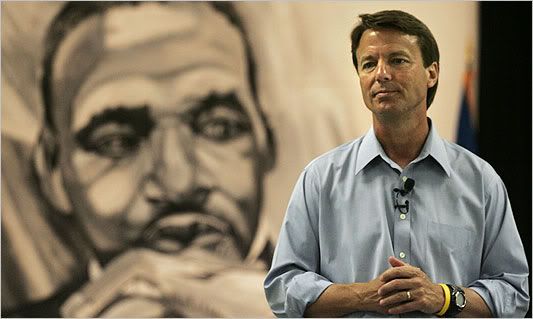
The specialization of images of the world evolves into a world of autonomized images where even the deceivers are deceived.

The spectacle presents itself simultaneously as society itself, as a part of society, and as a means of unification.
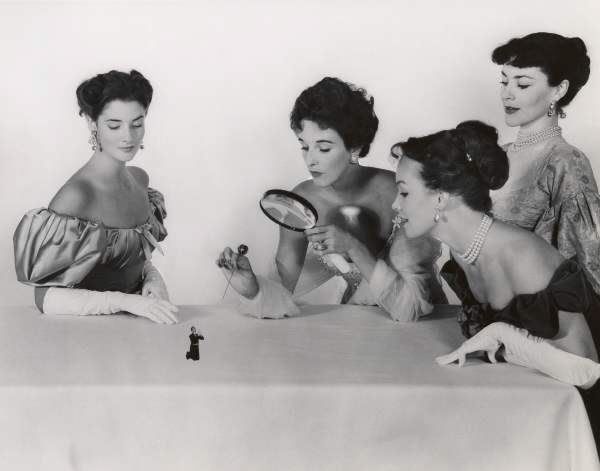
The spectacle is not a collection of images; it is a social relation between people that is mediated by images.

The spectacle cannot be understood as a mere visual deception produced by mass-media technologies.

The spectacle presents itself as a vast inaccessible reality that can never be questioned.

Its sole message is: “What appears is good; what is good appears.”

The passive acceptance it demands is already effectively imposed by its monopoly of appearances, its manner of appearing without allowing any reply.

It is the sun that never sets over the empire of modern passivity. It covers the entire surface of the globe, endlessly basking in its own glory.

In the spectacle — the visual reflection of the ruling economic order — goals are nothing, development is everything. It is nothing other than the economy developing for itself.

The spectacle does not realize philosophy, it philosophizes reality, reducing everyone’s concrete life to a universe of speculation.

The illusory paradise that represented a total denial of earthly life is no longer projected into the heavens, it is embedded in earthly life itself.

The spectacle is the technological version of the exiling of human powers into a “world beyond”; the culmination of humanity’s internal separation.

The spectacle is the ruling order’s nonstop discourse about itself, its never-ending monologue of self-praise, its self-portrait at the stage of totalitarian domination of all aspects of life.
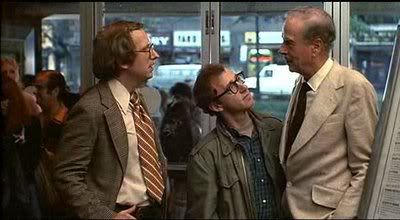
"I heard, I heard what you were saying. You, you know nothing of my work. How you ever got to teach a course in anything is totally amazing." - Marshall McLuhan
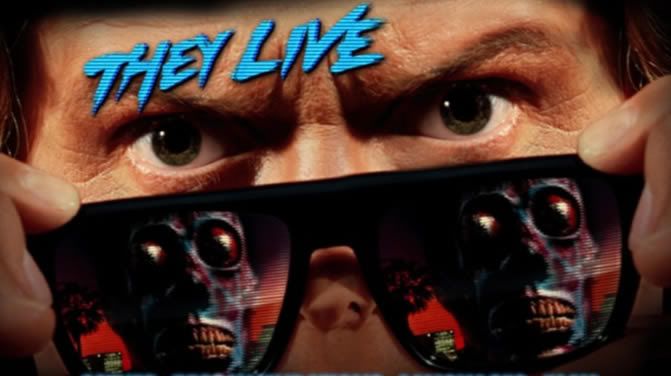
Guy Debord's smart but overwritten 1967 text The Society Of The Spectacle is sweeter with images from John Carpenter's classic 1988 horror-futuro-action spectacular They Live.
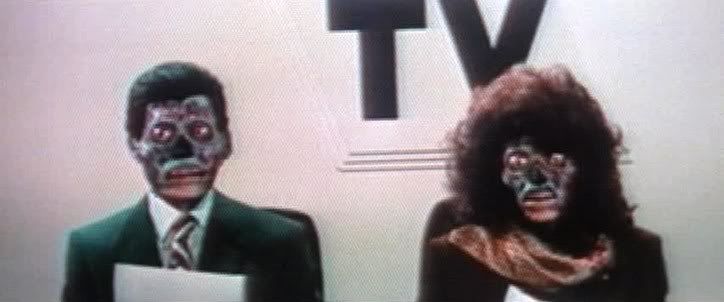
The spectacle is capital accumulated to the point that it becomes images.

The fetishism of the commodity — the domination of society by “intangible as well as tangible things” attains its ultimate fulfillment in the spectacle.

Where the real world is replaced by a selection of images which are projected above it.
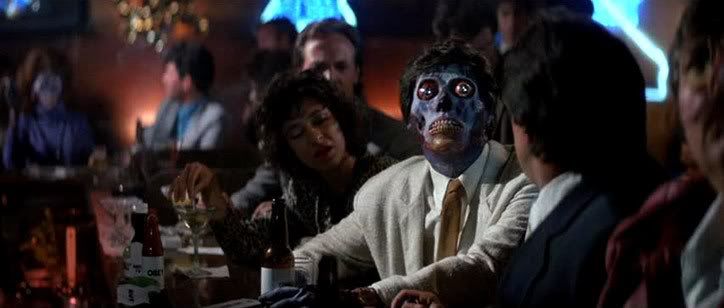
Yet which at the same time succeed in making themselves regarded as the epitome of reality.

As specialists of apparent life, stars serve as superficial objects that people can identify with in order to compensate for the fragmented productive specializations that they actually live.
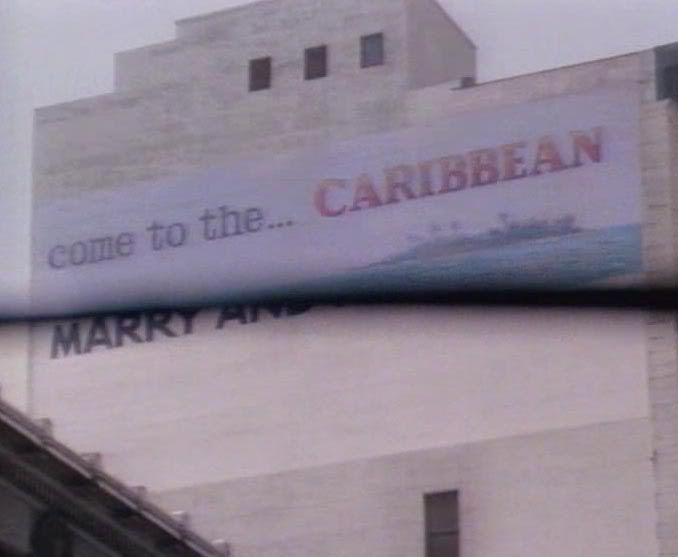
They embody the inaccessible results of social labor by dramatizing the by-products of that labor which are magically projected above it as its ultimate goals: POWER and VACATIONS.

The decision making and consumption that are at the beginning and the end of a process that is never questioned.

The admirable people who personify the system are well known for not being what they seem.
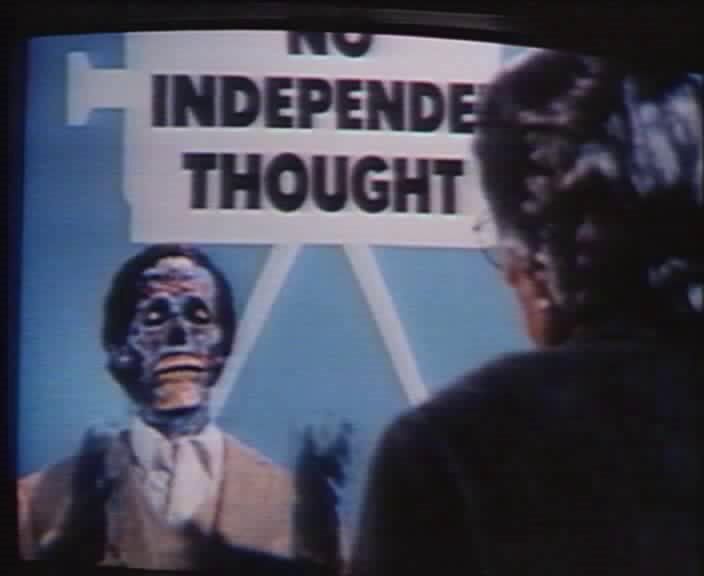
They attain greatness by stooping below the reality of the most insignificant individual life, and everyone knows it.

The false choices offered by spectacular abundance develop into struggles between illusory qualities designed to generate fervent allegiance to quantitative trivialities.
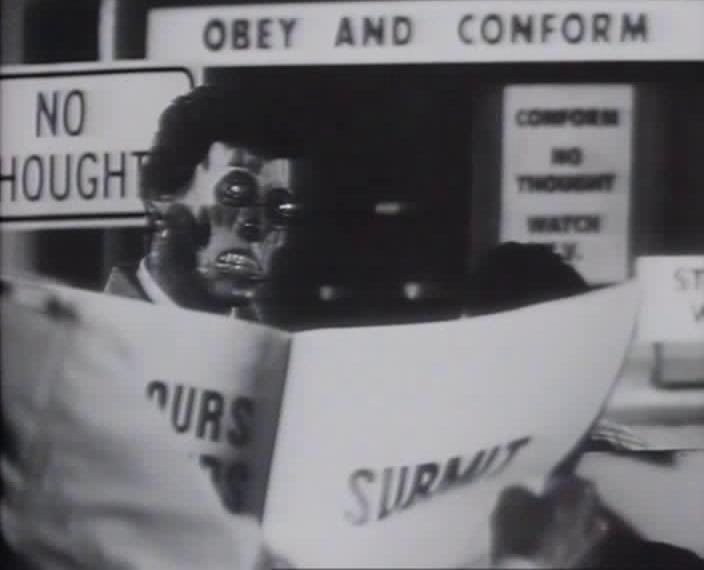
Choices based on the juxtaposition of competing yet mutually reinforcing interconnected roles signified and embodied primarily by objects
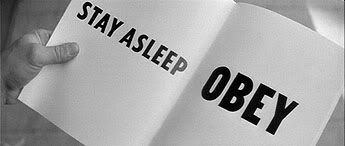
Archaic oppositions are revived. Regionalisms and racisms which serve to endow mundane rankings in the hierarchies of consumption with a magical ontological superiority.
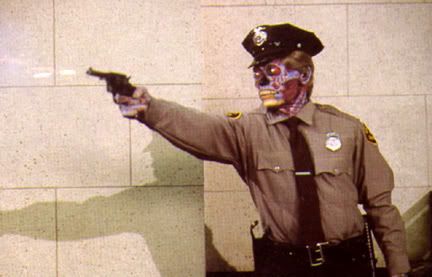
Pseudoplayful enthusiasms are aroused by an endless succession of ludicrous competitions, from sports to elections.
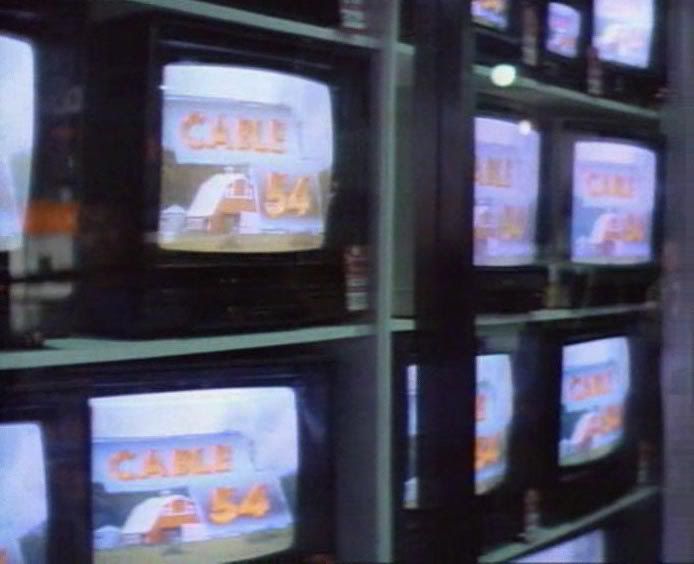
Wherever abundant consumption is established, one particular opposition is always in the forefront: the antagonism between youth and adults.
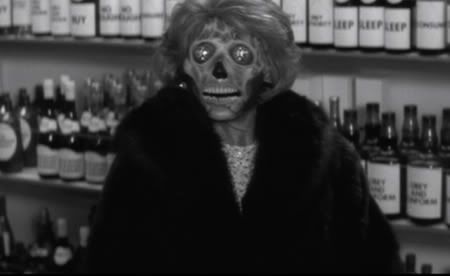
But real adults — people who are masters of their own lives — are in fact nowhere to be found.
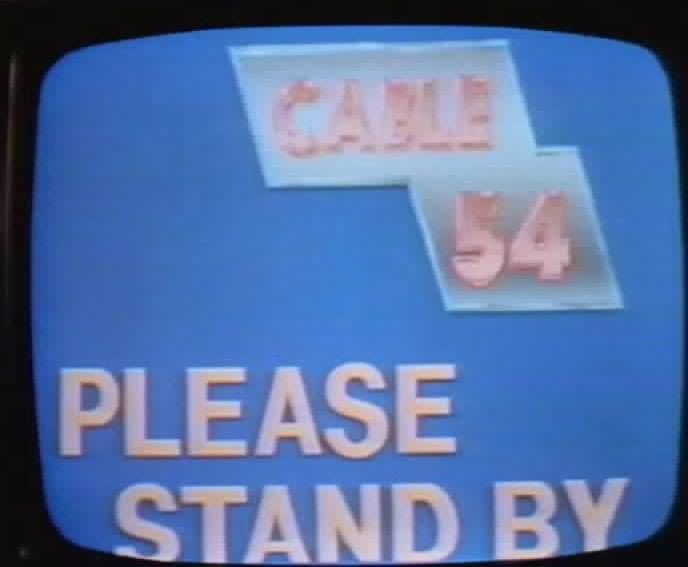
Youth is present solely in the economic system, in the dynamism of capitalism.
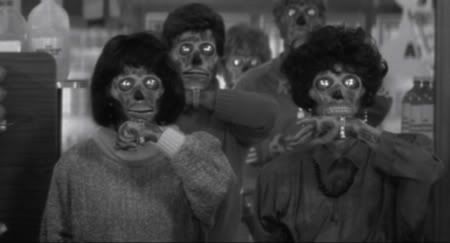
It is things that rule and that are young, vying with each other and constantly replacing each other.
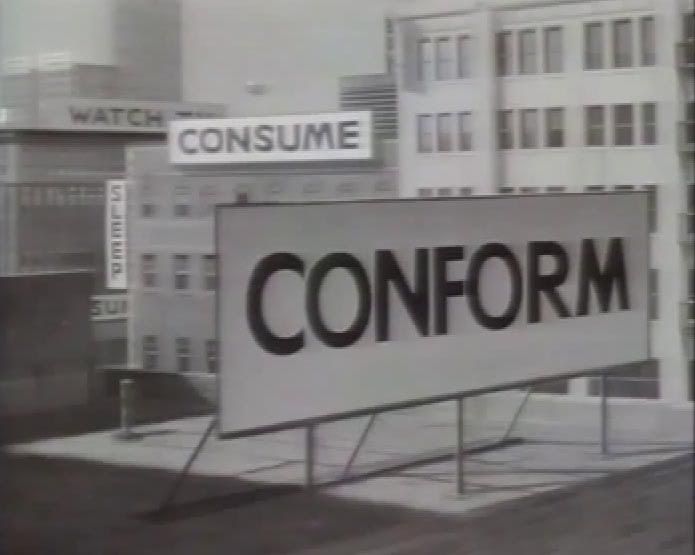
The satisfaction that no longer comes from using the commodities produced in abundance is now sought through recognition of their value as commodities.

Consumers are filled with religious fervor for the sovereign freedom of commodities whose use has become an end in itself.
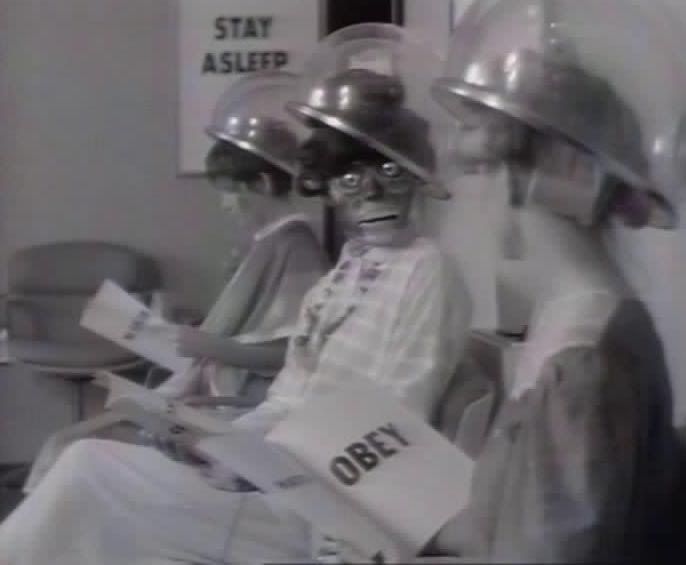
Reified people proudly display the proofs of their intimacy with the commodity.
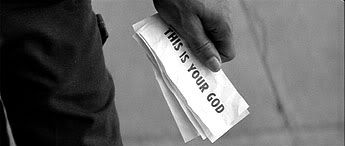
Like the old religious fetishism, with its convulsionary raptures and miraculous cures, the fetishism of commodities generates its own moments of fervent exaltation.

All this is useful for only one purpose: producing habitual submission.

Each new lie of the advertising industry is an admission of its previous lie.

And with each downfall of a personification of totalitarian power, the illusory community that had unanimously approved him is exposed as a mere conglomeration of loners.

The things the spectacle presents as eternal are based on change, and must change as their foundations change.

The spectacle is totally dogmatic, yet it is incapable of arriving at any really solid dogma.

Nothing stands still for it. This instability is the spectacle’s natural condition, but it is completely contrary to its natural inclination.

What brings people into relation with each other by liberating them from their local and national limitations is also what keeps them apart.
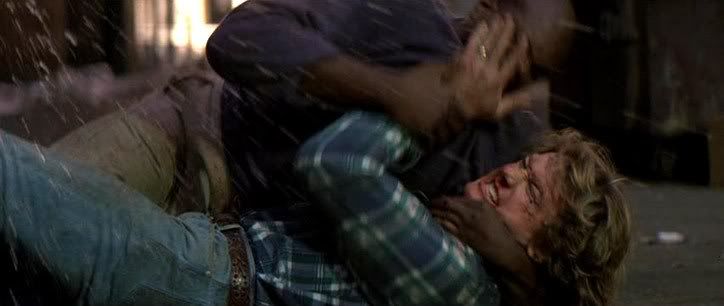
What requires increased rationality is also what nourishes the irrationality of hierarchical exploitation and repression.

What produces society’s abstract power also produces its concrete lack of freedom.

Disclaimer: I'm not trying to push Marxism on you. I cut the bulk of the most political stuff because frankly, I'm not advocating a coup d'état. What I do advocate, however, is an overthrow of the Celebrity-Industrial complex.

Wealth is not a virtue, and neither is fame. In American culture the ruling class is depicted everywhere, like a visible aristocracy. I would like it if more people aspired to be good rather than rich. But what the hell do I know, I'm a terminally broke blogstress.

The spectacle, considered as the reigning society’s method for paralyzing history and memory and for suppressing any history based on historical time, represents a false consciousness of time.

The free space of commodities is constantly being altered and redesigned in order to become ever more identical to itself, to get as close as possible to motionless monotony.

While eliminating geographical distance, this society produces a new internal distance in the form of spectacular separation.

John F. Kennedy survived as an orator to the point of delivering his own funeral oration, since Theodore Sorenson continued to write speeches for his successor in the same style that had contributed so much toward the dead man’s public persona.

Culture is the general sphere of knowledge and of representations of lived experiences within historical societies divided into classes.

It is a generalizing power which itself exists as a separate entity, as division of intellectual labor and as intellectual labor of division.

The most modern tendency of spectacular culture — which is also the one most closely linked to the repressive practice of the general organization of society,

Seeks by means of “collective projects” to construct complex neoartistic environments out of decomposed elements.

As culture becomes completely commodified it tends to become the star commodity of spectacular society.

Clark Kerr has calculated that the complex process of production, distribution and consumption of knowledge already accounts for 29% of the gross national product of the United States;

He predicts that in the second half of this century the "knowledge industry” will become the driving force of the American economy, as was the automobile in the first half of this century and the railroad in the last half of the previous century.

Ideas improve. The meaning of words plays a role in that improvement.

Plagiarism is necessary. Progress depends on it. It sticks close to an author’s phrasing, exploits his expressions, deletes a false idea, replaces it with the right one.

The spectacle is the acme of ideology because it fully exposes and manifests the essence of all ideological systems: the impoverishment, enslavement and negation of real life.

The repression of practice and the antidialectical false consciousness that results from that repression are imposed at every moment of everyday life subjected to the spectacle.

A subjection that systematically destroys the “faculty of encounter” and replaces it with a social hallucination: a false consciousness of encounter, an “illusion of encounter.”

In a society where no one can any longer be recognized by others, each individual becomes incapable of recognizing his own reality.

Ideology is at home; separation has built its own world.

Imprisoned in a flattened universe bounded by the screen of the spectacle that has enthralled him.
The spectator knows no one but the fictitious speakers who subject him to a one-way monologue about their commodities and the politics of their commodities.

The consumer’s compulsion to imitate is a truly infantile need, conditioned by all the aspects of his fundamental dispossession.

The spectacle as a whole serves as his looking glass. What he sees there are dramatizations of illusory escapes from a universal autism.

Molly Lambert is the managing editor of This Recording. She tumbls here. She twitters here.












































